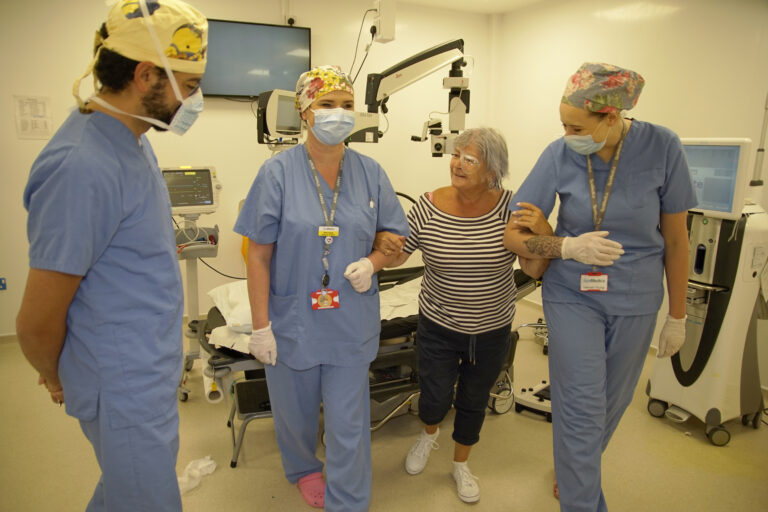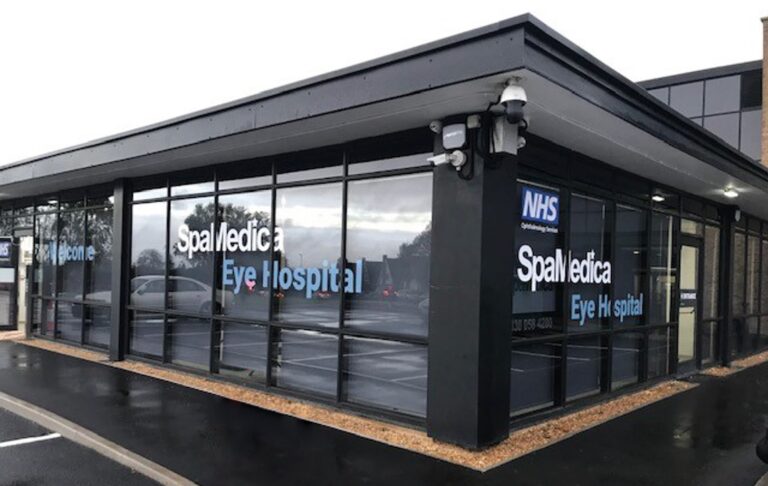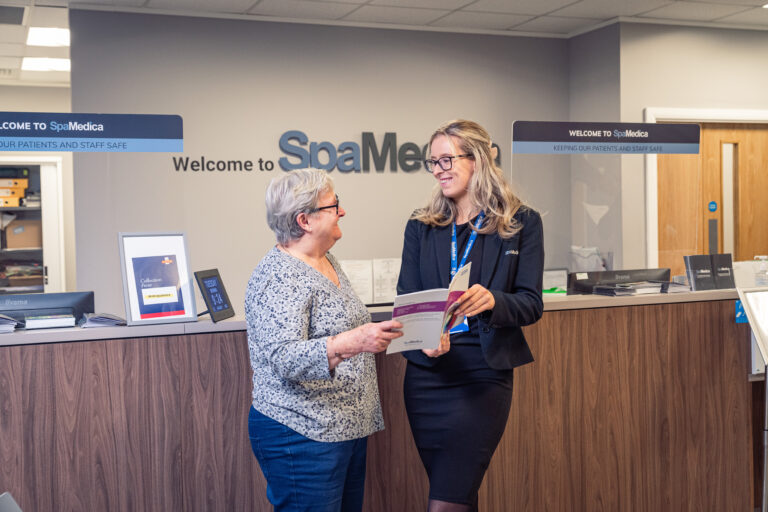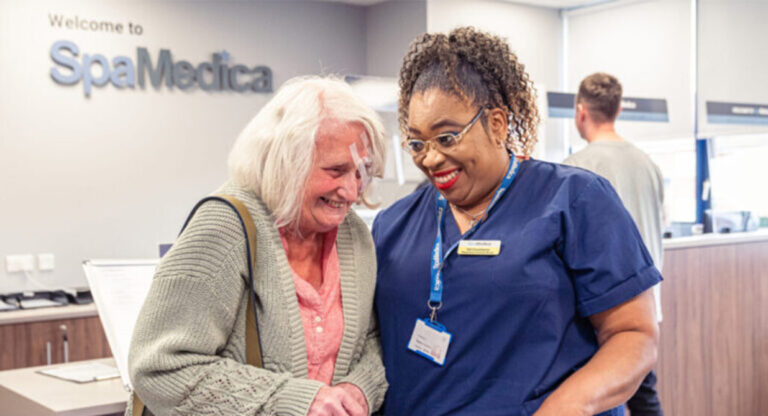Cataracts
Cataracts are pretty common in adults. Symptoms include blurry/cloudy vision, colours looking faded or washed out, or seeing halos around bright lights. You may find your glasses aren’t as effective as they used to be, and have trouble with reading, watching television, or driving (especially at night).
About 30% of adults aged 65+ will have a cataract that is affecting their vision and requires treatment. The only reliable treatment for cataracts is cataract surgery – a quick, straightforward and painless procedure that only takes around twenty minutes to complete. Cataract surgery has a 99% success rate and is currently the most common operation performed in the UK today, with hundreds of thousands of surgeries performed every year.
Most people qualify for free NHS cataract treatment and find that it helps to improve their eyesight and their quality of life.
Whether you’re a patient in need of cataract surgery, or a relative/family friend looking for more information about cataract treatment, our Cataract Patient Journey provides a step-by-step guide to every stage of treatment, so you know exactly what to expect along the way.

Causes
Most cataracts are age-related. As people grow older, the proteins in the lens of their eye can start to break down, which results in the lens becoming cloudy. Over time, this clouding leads to the symptoms commonly associated with cataracts. Nobody knows what causes these changes to occur, but around 30% of adults over the age of 65 will have a cataract that affects their vision and requires cataract surgery – so you’re not alone!
Cataracts can also be caused by drinking too much alcohol, smoking, diabetes, and taking steroids or steroid-based medication. If you’ve suffered an eye injury in the past, or had eye surgery, you may also be more likely to develop cataracts.
-

SpaMedica locations
We take pride in consistently delivering the highest quality care across all our hospitals. Find your nearest one.
Locations -

Patient journey
You may be right at the beginning of your patient journey and still waiting for a diagnosis, or somewhere in the middle. With this in mind, we’ve put together all the information you’ll need along the way.
Patient Journey
-
Visit your optician
Everyone should visit their optician for a check-up once every two years, but if you’ve noticed any changes to your vision, it’s important to book an appointment as soon as possible so they can investigate the cause and refer you for treatment if necessary. Click here to search for an optician near you on the NHS website.
-
Your local ICB
If you have chosen SpaMedica as your treatment provider and are having difficulty getting a cataract treatment appointment at one of our hospitals, please contact your local Integrated Care Board (ICB) to let them know. Click here to visit the NHS website for more information about ICBs and how to find and contact your local ICB.

